This website is provided for educational and informational purposes only and does not constitute providing medical advice or professional services. The information provided should not be used for diagnosing or treating a health problem or disease, and those seeking personal medical advice should consult with a licensed physician.
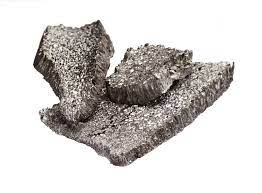
Magnesium, different types, benefits and dosage
Magnesium is a vital mineral that plays a crucial role in several bodily functions. It is involved in more than 300 enzymatic reactions in the body, including energy production, protein synthesis, muscle and nerve function, and bone health. Magnesium can be found in different types, including:

- Magnesium Citrate: This form of magnesium is highly absorbable and is often used to improve digestion and relieve constipation.
- Magnesium Glycinate: This form of magnesium is gentle on the stomach and is often used to promote relaxation and reduce anxiety.
- Magnesium Oxide: This form of magnesium is often used as a laxative and is less absorbable than other forms.
- Magnesium Chloride: This form of magnesium is often used in topical applications and is absorbed through the skin.
- Some of the benefits of magnesium include:
- Improving heart health: Magnesium helps regulate heart rhythm and can reduce the risk of heart disease.
- Reducing anxiety and stress: Magnesium can help reduce anxiety and promote relaxation.
- Improving bone health: Magnesium helps build and maintain strong bones.
- Regulating blood sugar levels: Magnesium plays a role in insulin sensitivity and can help regulate blood sugar levels.
- Relieving muscle cramps: Magnesium can help relax muscles and reduce muscle cramps.
- The recommended daily intake of magnesium varies by age and gender. The National Institutes of Health recommends the following daily intake:
- Adult men: 400-420 mg
- Adult women: 310-320 mg
- Pregnant women: 350-360 mg
- Breastfeeding women: 310-320 mg
It is important to talk to a healthcare provider before starting any new supplement regimen, including magnesium, as it can interact with some medications and may not be safe for individuals with certain health conditions.
All types of magnesium and benefits There are many different types of magnesium, each with unique benefits. Here are some of the most common types and their benefits:
1-Magnesium citrate
Magnesium citrate is a form of magnesium that is highly absorbable and is often used as a dietary supplement to support overall health. It is made by combining magnesium with citric acid, which helps improve its absorption and bioavailability in the body.
Here are some of the benefits of magnesium citrate:
- Improves bowel regularity: Magnesium citrate is often used as a natural laxative to relieve constipation and promote bowel regularity. It works by drawing water into the intestines, which softens the stool and makes it easier to pass.
- Supports digestive health: Magnesium citrate can help support overall digestive health by reducing inflammation and improving gut motility.
- Reduces stress and anxiety: Magnesium citrate can help reduce stress and anxiety by promoting relaxation and calming the nervous system. It also supports healthy sleep, which can further reduce stress and anxiety.
- Improves heart health: Magnesium citrate plays an important role in regulating heart rhythm and reducing the risk of heart disease. It can also lower blood pressure and support overall cardiovascular health.
- Supports bone health: Magnesium citrate helps build and maintain strong bones by regulating calcium and vitamin D absorption in the body.
- Reduces muscle tension and cramps: Magnesium citrate can help relax muscles and reduce muscle tension and cramps, making it beneficial for athletes and individuals with muscle pain or tension. It’s important to note that while magnesium citrate is generally safe, it can interact with some medications and may not be safe for individuals with certain health conditions. As always, it’s best to talk to a healthcare provider before starting any new supplement regimen.
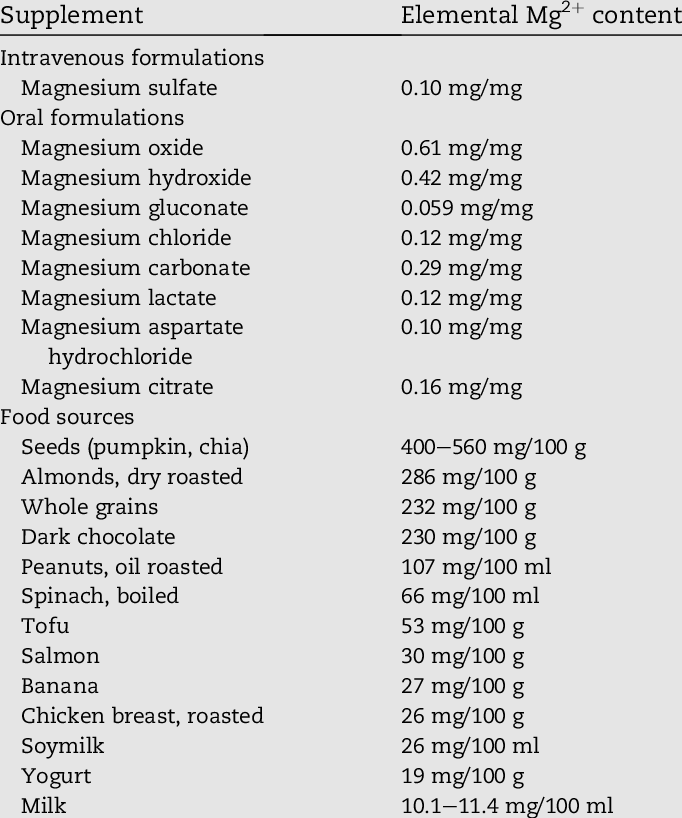
2-Magnesium glycinate
Magnesium glycinate is a highly bioavailable form of magnesium that is often used as a dietary supplement to support overall health. It is made by combining magnesium with the amino acid glycine, which helps improve its absorption and bioavailability in the body.
Here are some of the benefits of magnesium glycinate:
Which Substances Encourage The Absorption of Magnesium Glycinate?
Although magnesium can be absorbed independently, there are some vitamins and minerals that contribute to its absorption.
- Vitamin C
- The B-group vitamins (vitamin B6 in particular), because B6 helps determine, how much magnesium is absorbed into cells
- Vitamin D
- Calcium
- Potassium
- Sodium, etc.
Therefore, it is advisable to take the magnesium glycinate supplement with food so that all the other necessary substances are available. This maximize the absorption of magnesium glycinate.
- Reduces anxiety and stress: Magnesium glycinate can help reduce anxiety and stress by promoting relaxation and calming the nervous system. It also supports healthy sleep, which can further reduce stress and anxiety.
- Supports healthy sleep: Magnesium glycinate can help improve sleep quality and duration by promoting relaxation and calming the nervous system. It can also reduce nighttime muscle cramps and promote overall muscle relaxation.
- Reduces muscle tension and cramps: Magnesium glycinate can help relax muscles and reduce muscle tension and cramps, making it beneficial for athletes and individuals with muscle pain or tension.
- Supports cardiovascular health: Magnesium glycinate plays an important role in regulating heart rhythm, reducing blood pressure, and supporting overall cardiovascular health.
- Supports bone health: Magnesium glycinate helps build and maintain strong bones by regulating calcium and vitamin D absorption in the body.
- Supports digestive health: Magnesium glycinate can help support overall digestive health by reducing inflammation and improving gut motility. It’s important to note that while magnesium glycinate is generally safe, it can interact with some medications and may not be safe for individuals with certain health conditions. As always, it’s best to talk to a healthcare provider before starting any new supplement regimen.

3-Magnesium L-threonate
Magnesium L-threonate is a form of magnesium that is highly absorbable and is known for its cognitive benefits. It is made by combining magnesium with L-threonic acid, which helps improve its absorption and bioavailability in the brain.
Here are some of the benefits of magnesium L-threonate:
- Improves cognitive function: Magnesium L-threonate can improve cognitive function, including memory, attention, and learning. It does this by increasing magnesium levels in the brain, which supports overall brain health and function.
- Reduces anxiety and stress: Magnesium L-threonate can help reduce anxiety and stress by promoting relaxation and calming the nervous system. It also supports healthy sleep, which can further reduce stress and anxiety.
- Supports healthy sleep: Magnesium L-threonate can help improve sleep quality and duration by promoting relaxation and calming the nervous system. It can also reduce nighttime muscle cramps and promote overall muscle relaxation.
- Supports brain health: Magnesium L-threonate helps build and maintain healthy brain tissue by supporting the synthesis of proteins and DNA. It can also reduce inflammation and oxidative stress, which can contribute to brain aging and disease.
- Reduces symptoms of depression: Magnesium L-threonate can help reduce symptoms of depression by promoting relaxation, improving sleep, and supporting overall brain health. It’s important to note that while magnesium L-threonate is generally safe, it can interact with some medications and may not be safe for individuals with certain health conditions. As always, it’s best to talk to a healthcare provider before starting any new supplement regimen.

4-Magnesium taurate
Magnesium taurate is a form of magnesium that is highly absorbable and is often used as a dietary supplement to support cardiovascular health. It is made by combining magnesium with the amino acid taurine, which helps improve its absorption and bioavailability in the body.
Here are some of the benefits of magnesium taurate:
- Supports cardiovascular health: Magnesium taurate plays an important role in regulating heart rhythm, reducing blood pressure, and supporting overall cardiovascular health. It can also reduce the risk of heart disease and stroke.
- Reduces anxiety and stress: Magnesium taurate can help reduce anxiety and stress by promoting relaxation and calming the nervous system. It also supports healthy sleep, which can further reduce stress and anxiety.
- Supports healthy sleep: Magnesium taurate can help improve sleep quality and duration by promoting relaxation and calming the nervous system. It can also reduce nighttime muscle cramps and promote overall muscle relaxation.
- Reduces muscle tension and cramps: Magnesium taurate can help relax muscles and reduce muscle tension and cramps, making it beneficial for athletes and individuals with muscle pain or tension.
- Supports bone health: Magnesium taurate helps build and maintain strong bones by regulating calcium and vitamin D absorption in the body.
- Supports overall health: Magnesium taurate can support overall health and wellbeing by reducing inflammation, improving energy levels, and promoting healthy digestion. It’s important to note that while magnesium taurate is generally safe, it can interact with some medications and may not be safe for individuals with certain health conditions. As always, it’s best to talk to a healthcare provider before starting any new supplement regimen.

5-Magnesium malate
Magnesium malate is a form of magnesium that is highly absorbable and is often used as a dietary supplement to support energy production and muscle health. It is made by combining magnesium with malic acid, which helps improve its absorption and bioavailability in the body.
Here are some of the benefits of magnesium malate:
- Supports energy production: Magnesium malate plays an important role in energy production by supporting the synthesis of ATP, the primary energy currency of the body. It can also reduce fatigue and improve overall energy levels.
- Reduces muscle pain and soreness: Magnesium malate can help reduce muscle pain and soreness by promoting muscle relaxation and reducing inflammation. It is especially beneficial for individuals with fibromyalgia and chronic fatigue syndrome.
- Supports healthy digestion: Magnesium malate can help support healthy digestion by reducing inflammation and promoting regular bowel movements.
- Reduces symptoms of depression: Magnesium malate can help reduce symptoms of depression by promoting relaxation, improving sleep, and supporting overall brain health.
- Supports overall health: Magnesium malate can support overall health and wellbeing by reducing inflammation, improving immune function, and promoting healthy cardiovascular function. It’s important to note that while magnesium malate is generally safe, it can interact with some medications and may not be safe for individuals with certain health conditions. As always, it’s best to talk to a healthcare provider before starting any new supplement regimen.

6-Magnesium lactate
Magnesium lactate is a form of magnesium that is highly absorbable and is often used as a dietary supplement to support cardiovascular and neurological health. It is made by combining magnesium with lactic acid, which helps improve its absorption and bioavailability in the body.
Here are some of the benefits of magnesium lactate:
- Supports cardiovascular health: Magnesium lactate plays an important role in regulating heart rhythm, reducing blood pressure, and supporting overall cardiovascular health. It can also reduce the risk of heart disease and stroke.
- Supports neurological health: Magnesium lactate helps support neurological health by regulating the release of neurotransmitters and promoting healthy brain function.
- Supports muscle health: Magnesium lactate can help support muscle health by promoting muscle relaxation and reducing muscle cramps and spasms.
- Supports bone health: Magnesium lactate helps build and maintain strong bones by regulating calcium and vitamin D absorption in the body.
- Supports overall health: Magnesium lactate can support overall health and wellbeing by reducing inflammation, improving energy levels, and promoting healthy digestion. It’s important to note that while magnesium lactate is generally safe, it can interact with some medications and may not be safe for individuals with certain health conditions. As always, it’s best to talk to a healthcare provider before starting any new supplement regimen.
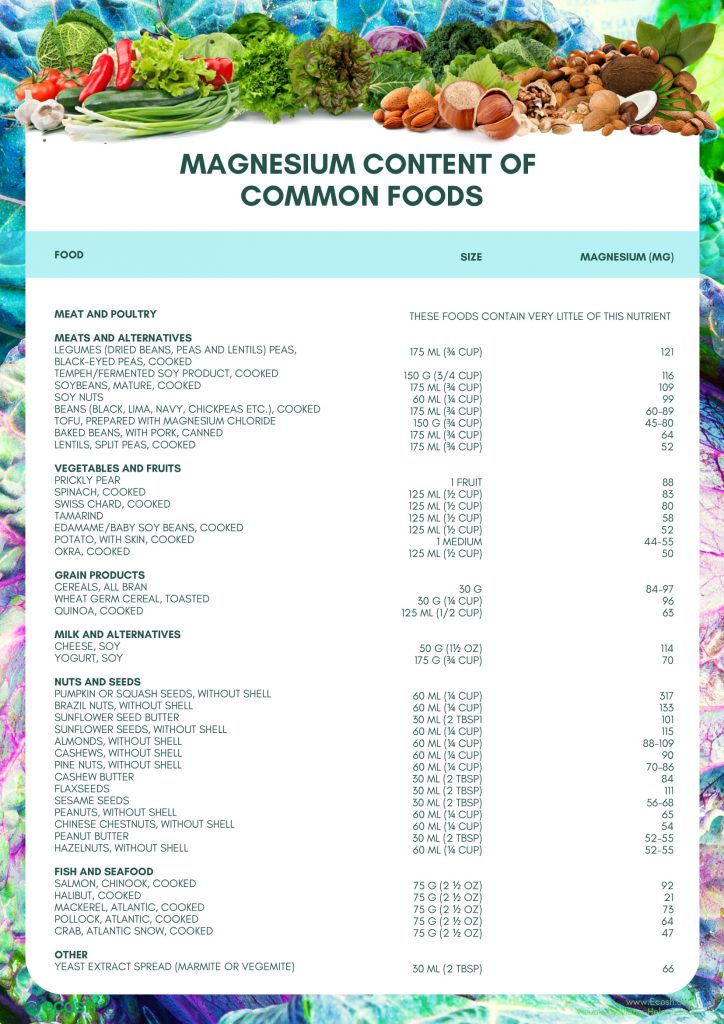
7-Magnesium chloride
Magnesium chloride is a form of magnesium that is highly soluble in water and is often used as a dietary supplement to support overall health and wellbeing. It is made by combining magnesium with chlorine to form a salt.
Here are some of the benefits of magnesium chloride:
- Supports bone health: Magnesium chloride helps build and maintain strong bones by regulating calcium and vitamin D absorption in the body.
- Supports cardiovascular health: Magnesium chloride plays an important role in regulating heart rhythm, reducing blood pressure, and supporting overall cardiovascular health. It can also reduce the risk of heart disease and stroke.
- Reduces muscle tension and cramps: Magnesium chloride can help relax muscles and reduce muscle tension and cramps, making it beneficial for athletes and individuals with muscle pain or tension.
- Supports healthy skin: Magnesium chloride can be applied topically to the skin to help reduce inflammation and promote healthy skin.
- Supports overall health: Magnesium chloride can support overall health and wellbeing by reducing inflammation, improving energy levels, and promoting healthy digestion. It’s important to note that while magnesium chloride is generally safe, it can interact with some medications and may not be safe for individuals with certain health conditions. As always, it’s best to talk to a healthcare provider before starting any new supplement regimen.
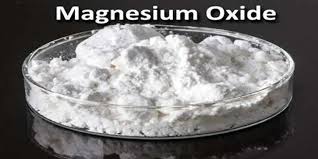
8-Magnesium oxide
Magnesium oxide is a form of magnesium that is commonly used as a dietary supplement to support overall health and wellbeing. It is made by combining magnesium with oxygen to form a white powder.
Here are some of the benefits of magnesium oxide:
- Supports bone health: Magnesium oxide helps build and maintain strong bones by regulating calcium and vitamin D absorption in the body.
- Supports digestive health: Magnesium oxide can help relieve constipation and promote regular bowel movements by relaxing the muscles in the digestive tract.
- Supports overall health: Magnesium oxide can support overall health and wellbeing by reducing inflammation, improving energy levels, and promoting healthy cardiovascular function.
- Reduces symptoms of anxiety: Magnesium oxide can help reduce symptoms of anxiety by promoting relaxation and reducing stress levels.
- Reduces symptoms of migraines: Magnesium oxide can help reduce the frequency and severity of migraines by promoting relaxation and reducing inflammation. It’s important to note that while magnesium oxide is generally safe, it can interact with some medications and may not be safe for individuals with certain health conditions. As always, it’s best to talk to a healthcare provider before starting any new supplement regimen. Additionally, magnesium oxide is not the most absorbable form of magnesium and may not be as effective as other forms of magnesium supplements.
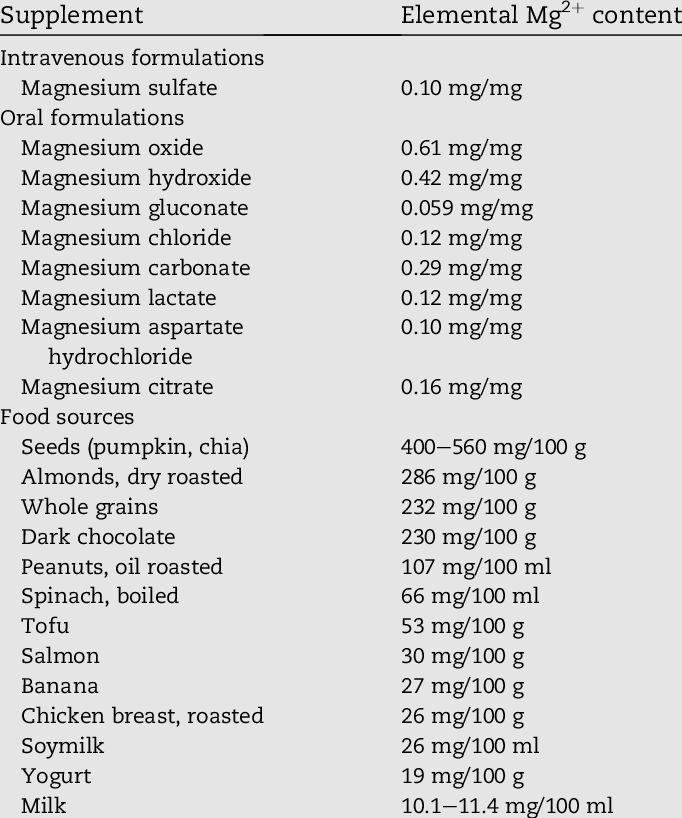
9-Magnesium sulphate
Magnesium sulphate, also known as Epsom salt, is a form of magnesium that is often used in bath salts, as a laxative, and as a treatment for certain medical conditions. It is made by combining magnesium with sulfur and oxygen to form a salt.
Here are some of the benefits of magnesium sulphate:
- Relieves muscle tension and pain: Magnesium sulphate can help relax muscles and reduce muscle tension and pain, making it beneficial for individuals with sore muscles or cramps.
- Promotes relaxation and reduces stress: Magnesium sulphate can help promote relaxation and reduce stress levels by helping to regulate the release of stress hormones.
- Promotes healthy skin: Magnesium sulphate can be applied topically to the skin to help reduce inflammation and promote healthy skin.
- Relieves constipation: Magnesium sulphate can be used as a laxative to help relieve constipation and promote regular bowel movements.
- Treats certain medical conditions: Magnesium sulphate can be used to treat certain medical conditions, such as pre-eclampsia, a serious pregnancy complication. It’s important to note that while magnesium sulphate is generally safe, it can interact with some medications and may not be safe for individuals with certain health conditions. As always, it’s best to talk to a healthcare provider before starting any new supplement or treatment regimen
10-Magnesium orotate

Magnesium orotate may bolster heart health by improving energy production in your heart and blood vessel tissue.
Magnesium orotate is a dietary supplement that combines magnesium with orotic acid. Magnesium is an essential mineral that plays a key role in many physiological processes in the body, including muscle and nerve function, energy production, and the synthesis of DNA and RNA. Orotic acid is a natural substance that is found in the body and is involved in the metabolism of nutrients like carbohydrates and fats.
Proponents of magnesium orotate claim that it offers several health benefits beyond those of standard magnesium supplements. These benefits may include improved cardiovascular health, enhanced cognitive function, reduced stress and anxiety, and improved athletic performance.

However, while some preliminary research has suggested that magnesium orotate may offer these benefits, much of the evidence is still inconclusive, and more research is needed to determine the effectiveness and safety of this supplement. Additionally, like all dietary supplements, magnesium orotate is not regulated by the FDA, and the quality and purity of different brands and formulations may vary.
As with any dietary supplement, it is important to talk to a healthcare professional before taking magnesium orotate or any other new supplement, particularly if you have any pre-existing health conditions or are taking other medications
